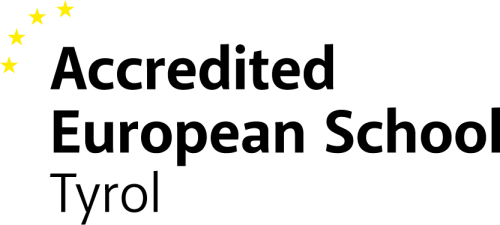Pedagogy

At European Schools, teaching takes place in the official languages of the European Union. We offer three language sections: English, Italian and German. The curricula and content of study (with the exception of mother tongue) are the same in all language sections.
To promote the unity of the school and a truly multicultural education, we place great emphasis on the learning, understanding and use of foreign languages. This is encouraged in a variety of ways. We respect the conscience and beliefs of each individual. Religious instruction or instruction in non-denominational ethics is an integral part of the curriculum.
Pedagogical support is important to us. Students with learning difficulties and special educational needs are offered appropriate support during their school career so that they can develop and progress according to their potential.
An overview of the organisation of the individual timetables can be found here.
We teach in accordance with the European School curricula. You can find the curricula on the website of the Office of the Secretary-General of the European Schools. In the following sections we will give you an overview of what our school offers in the primary and secondary level:
Primary level
The first five grades make up the primary level. There, the focus is on teaching the mother tongue, mathematics and the first foreign language. However, art, music, discovering the world and religion/morals are also important, as are the "European Hours", in which groups of pupils of different nationalities come together for various activities.
At the accredited European School Tyrol, the first four grades of primary school are taught at two locations:
- English & German language sections: Campus Saggen
- Italian language section: Campus Altwilten
For the fifth year of primary school, the children move to the campus Akademisches Gymnasium Innsbruck. This allows a transition directly into the secondary level, which is also taught at this location.
Secondary level
The secondary level includes years’ six to twelve. Seven year levels are divided as follows: In the first three years, students are taught according to a common curriculum called the 'observation level'. Most subjects are taught in the chosen language section. All pupils learn a second foreign language from the first year of secondary school. In the third year of secondary school, we teach human sciences and religion/morals in the first foreign language.
In the second year, we offer Latin as an optional subject. In the third year of secondary school, those pupils who chose Latin in the second year continue to be taught this subject. The remaining pupils can take Information Communication Technology (ICT).
In the fourth and fifth year, the compulsory subjects in the integrated sciences are divided into physics, chemistry, and biology. Our pupils can choose between the intensive or basic course in mathematics. Other options include economics, a third foreign language and ancient Greek.
The sixth and seventh years form a unit and lead to the European Baccalaureate. Although a number of compulsory subjects are mandatory (mother tongue, first foreign language, a science subject, philosophy, physical education, history and geography), pupils have a wide range of further options, whereby they can additionally choose between two-hour, four-hour or so-called specialisation courses.
